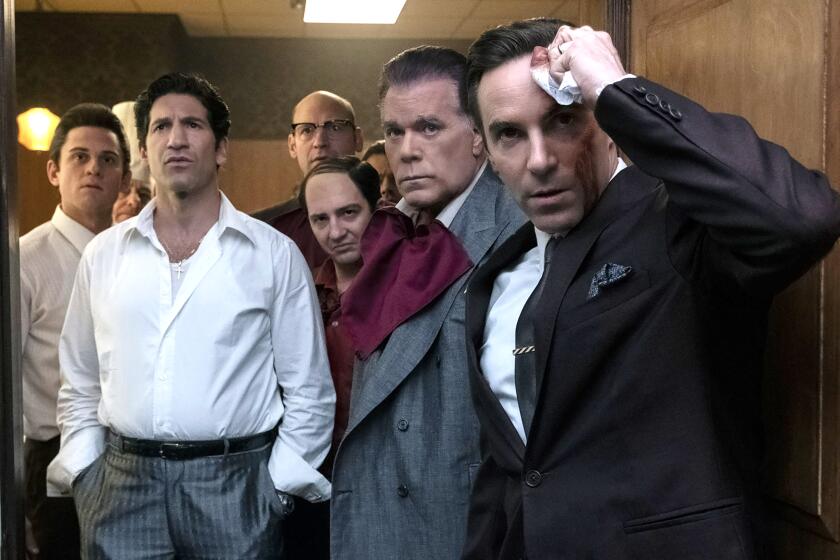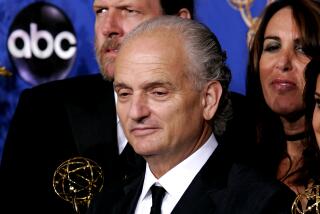Review: In ‘Sopranos’ prequel movie, Tony Soprano’s origin story gets short shrift
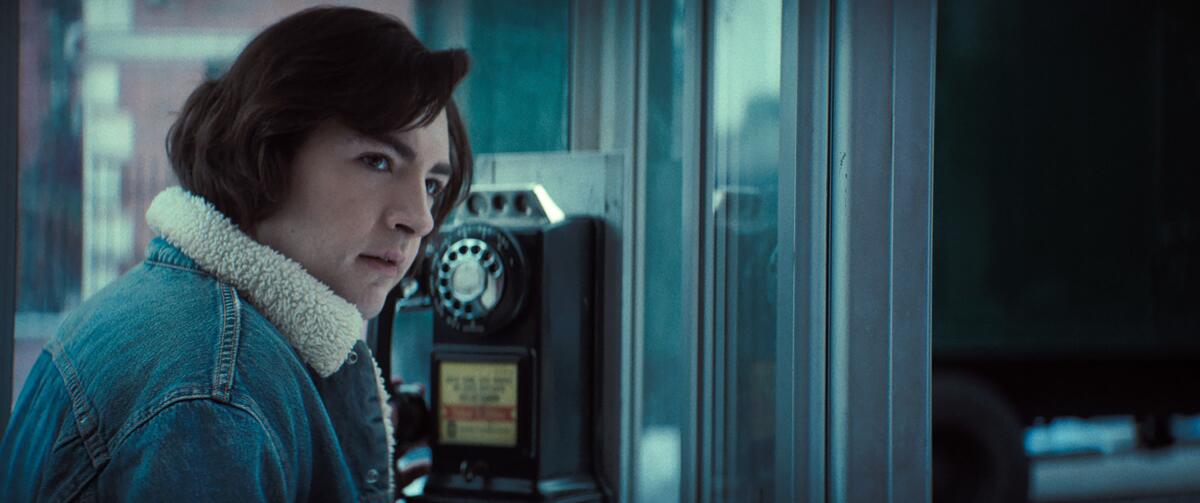
- Share via
Who made Tony Soprano?
That question is central to the ad campaign for “The Many Saints of Newark,” a feature film spun off the cable network’s seminal TV series “The Sopranos.”
Devotees and even casual fans of the game-changing show, which aired from 1999 to 2007, are certain to be drawn in by the promise of diving deeper into the intriguing character’s world when the prequel arrives in theaters and on HBO Max on Friday. Tony of the series (played by James Gandolfini) was a bundle of contradictions: a ruthless mafia crime boss with a penchant for classic rock, a guilt-laden son whose mom put a hit out on him, an idealist with blood on his hands, a tortured soul with regrets about who he’d become and the ruin he’d reaped.
But the film, written by the show’s creator, David Chase, and Lawrence Konner and directed by another series OG, Alan Taylor, doesn’t spend a lot of time with the young Soprano. It instead follows his uncle, Dickie Moltisanti (Alessandro Nivola), a charismatic mafioso who in the late 1960s keeps an eye on his nephew after the boy’s father, Johnny Boy Soprano (Jon Bernthal), is sent to prison.
Tony Soprano may not have put HBO on the map, but he sure made its address famous.
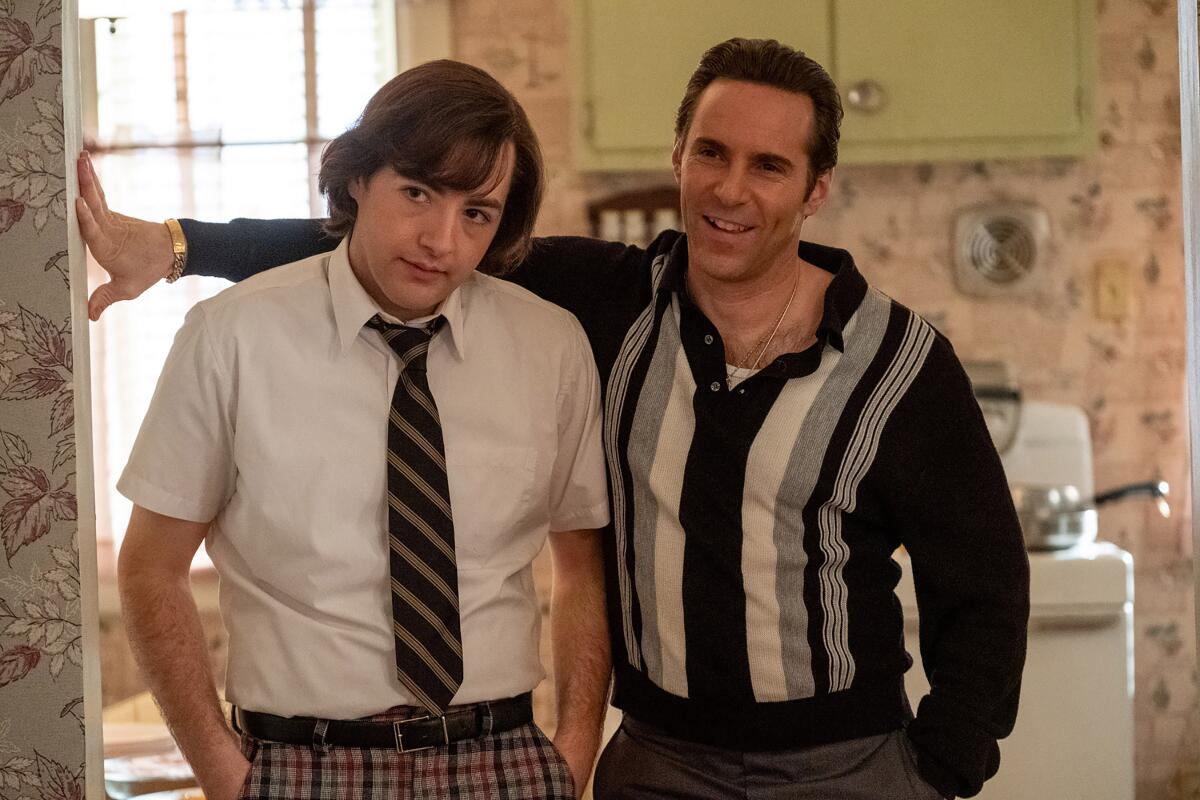
Too bad Dickie feels more like an echo of future Tony than the beginning of a new, revealing origin story. Smart and conflicted, he reluctantly followed his father — the brutal and violent Aldo “Hollywood Dick” (Ray Liotta) — into the DiMeo crime family and is now trapped by his own success in underhanded endeavors. But he can still do some good, and Dickie takes it upon himself to protect his nephew from the same fate.
There’s a lot jammed into these two hours, with too many diverging narratives, truncated subplots and series tie-ins competing with the surrogate dad relationship between the gangster and young Dickie — the very sell of the film. It leaves little space for their connection to make deeper inroads.
Among the setups meant to establish the place, people and era that formed Tony Soprano, midcentury Italian mob life is chronicled alongside the changing demographics of New Jersey. A racial reckoning erupts into the 1967 Newark riots, which in itself is captivating but never quite jells with the other narratives.
The rise of a Black gang led by Harold McBrayer (Leslie Odom Jr.), an associate of Dickie’s, challenges the family’s hold on the neighborhood, but again, there’s not enough time to tether the worlds in a cohesive story. “The Many Saints of Newark” might have played better as a limited series rather than a truncated self-contained production, with the potential for a deeper story to unfold over several impending episodes.
From the outset, the tale is narrated by Dickie’s son, the TV series character Christopher Moltisanti (Michael Imperioli), whom Tony memorably whacked in the series. He speaks from beyond the grave, bringing us back to before he was born, when his father, Dickie, was a rising star. His father’s orbit includes characters “destined” to play a pivotal role in the show: the awkward and shifty Uncle Junior (played with an understated brilliance by Corey Stoll), as well as the over-the-top personalities of Paulie Walnuts (Billy Magnussen) and Silvio Dante (John Magaro).
How David Chase recast old ‘Sopranos’ characters — and introduced new ones — for the big screen prequel ‘The Many Saints of Newark.’
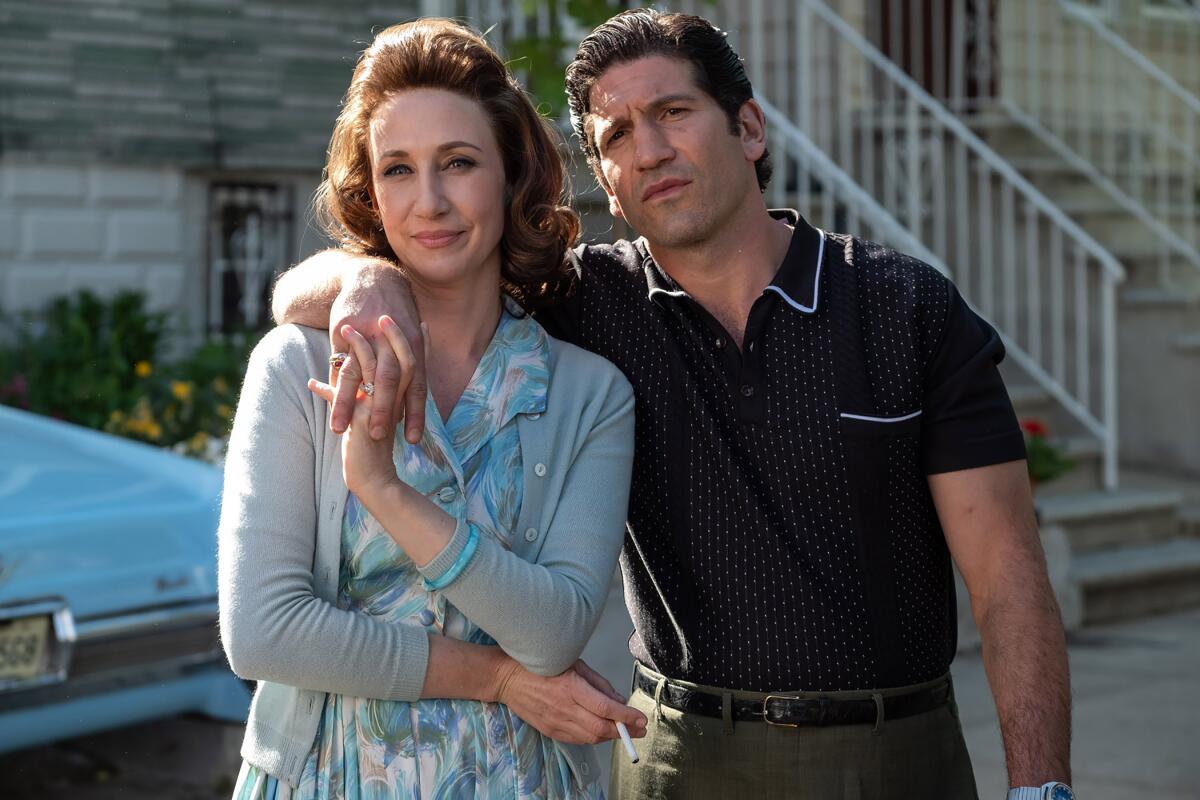
“The Many Saints of Newark” works best when it stays with teenaged Tony, played by the late Gandolfini’s son, Michael. He looks like his father, his mannerisms are eerily similar, and he possess that same unnerving gaze: Is Tony going to hug you or slice your throat? It’s chilling. Gandolfini’s performance is just as captivating as his father’s, especially when he’s interacting with Tony’s caustic, demeaning mother, Livia (Vera Farmiga nails the younger version of this monstrous character).
Tony yearns for closeness and love. Livia knows what she has to do to make him feel loved and secure — but her undiagnosed depression and inherent disgust with life make it impossible for her to get there. So she grinds him down, doling out rejection and insults in lieu of comfort and kisses. Their dynamic is at the heart of the film’s most moving scenes and its most telling moments. Who made Tony Soprano? She did, it appears. If only we had more time with the two, or a new series to truly answer that question.
'The Many Saints of Newark'
Rating: R, for strong violence, pervasive language, sexual content and some nudity
Running time: 2 hours
Playing: In general release and streaming on HBO Max
More to Read
Only good movies
Get the Indie Focus newsletter, Mark Olsen's weekly guide to the world of cinema.
You may occasionally receive promotional content from the Los Angeles Times.
